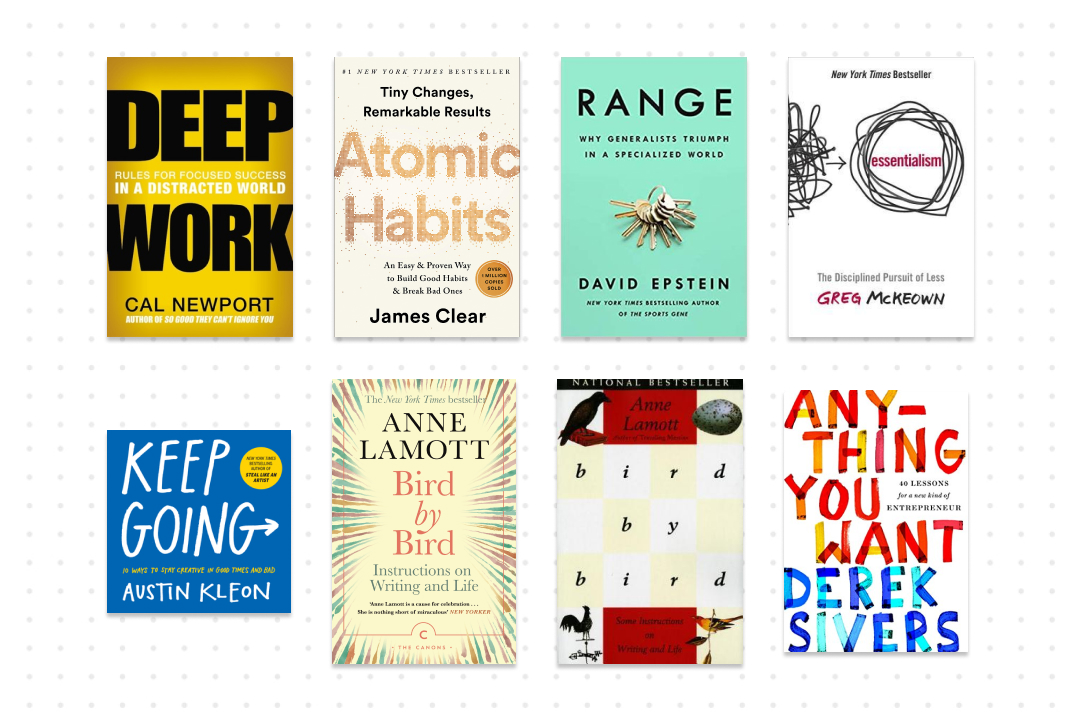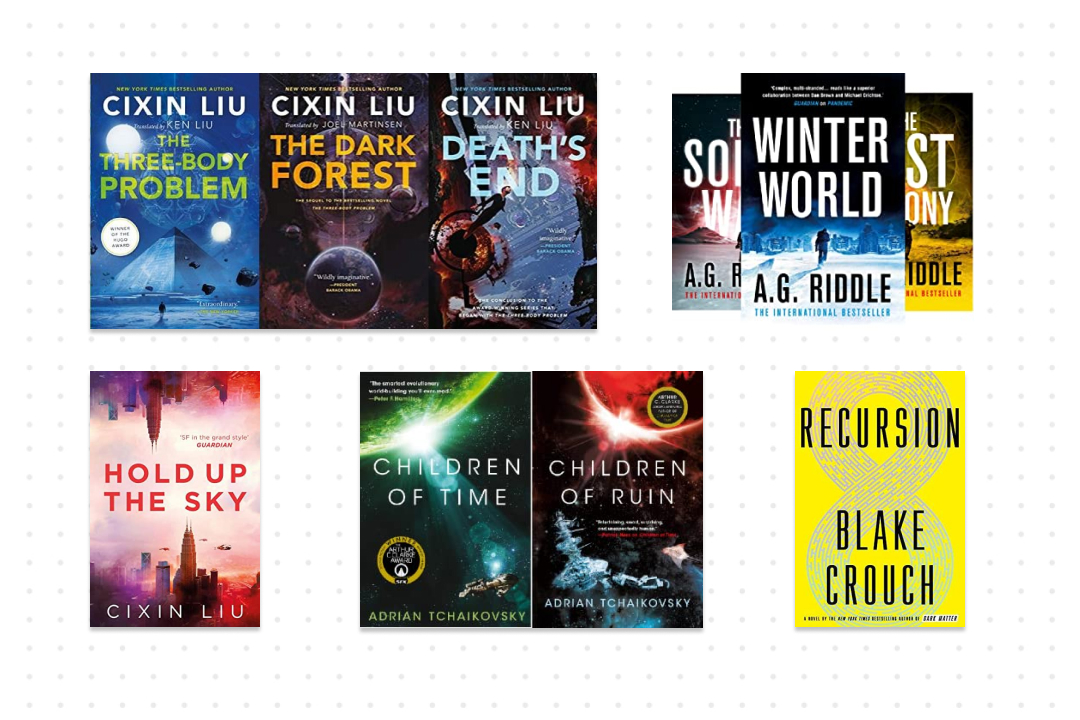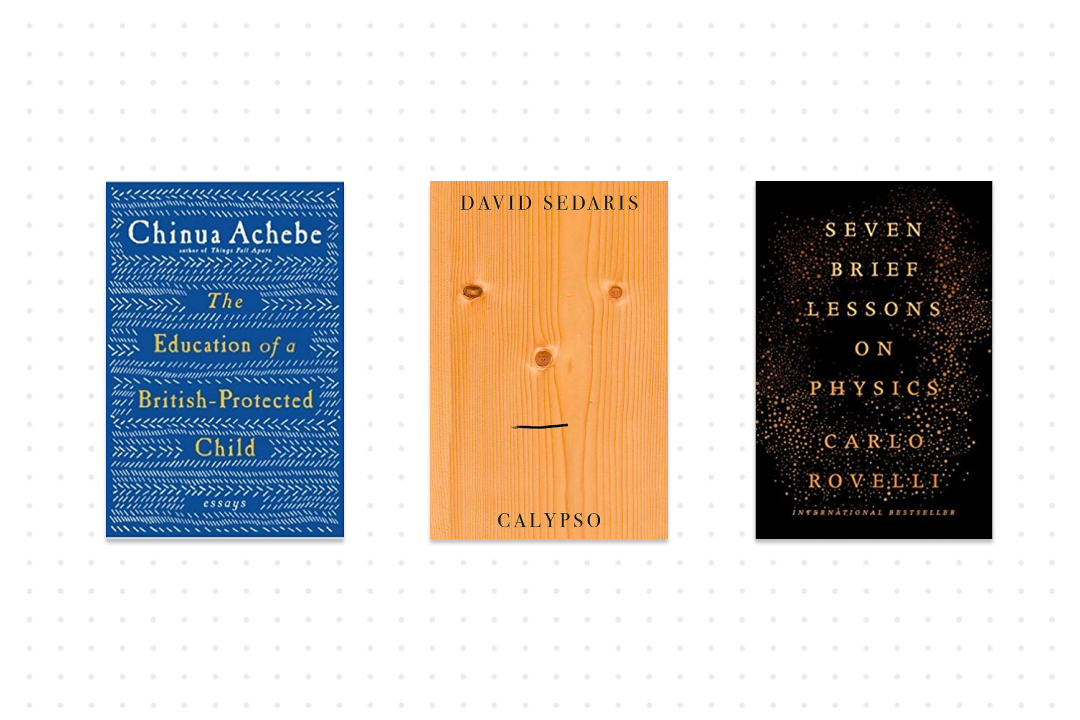Reading in 2020
2020 was a trash year in a lot of respects but it was a great year for reading for me. In 2018 and 2019 I read 14 and 19 books respectively but in 2020, I managed to increase that number and read almost twice as many books as I did the previous year, ending the year having read 33 books in total. One of my main goals going into 2020 was to increase the amount of reading I got done and in a year where there weren’t as many wins as I hoped, I’m choosing to count this as a major win.
While I would like to attribute this success to my sheer willpower and self-discipline, I must share some of the glory with the year 2020 itself. 2020, being the year that it was, contributed its fair share of happenings that provided me with the time, the need and a lot of times, the boredom, to meet my reading target.
For the first half of the year I curated all the books I read (as well as the other media I consumed) in a personal newsletter I sent out, you can check that out here.
So that said, here is a highlight of all the books that I read in 2020.
Productivity / Creativity / Business
 I started off the new year reading two amazing books on productivity: Deep Work by Cal Newport and Keep Going by Austin Kleon. In Deep Work, Cal Newport highlights the importance of working deeply (the focused stretching your mind to it’s limit in the creation of value) and offered different strategies for incorporating this practice into my daily life. On the other hand, Keep Going was less productivity strategies and more inspiration to keep creating beautiful things no matter what. Looking back at the year 2020, I realize that the advice in the book was almost prescient.
I started off the new year reading two amazing books on productivity: Deep Work by Cal Newport and Keep Going by Austin Kleon. In Deep Work, Cal Newport highlights the importance of working deeply (the focused stretching your mind to it’s limit in the creation of value) and offered different strategies for incorporating this practice into my daily life. On the other hand, Keep Going was less productivity strategies and more inspiration to keep creating beautiful things no matter what. Looking back at the year 2020, I realize that the advice in the book was almost prescient.
I also read, Atomic Habits by James Clear, which makes the case for building systems, routines and the so-called “atomic habits” that compound into exponential results in behavior and identity; Essentialism by Greg McKeown, a treatise on focusing on and dedicating one’s life to vital few things that would result in, as the author writes, “making the highest contribution”; and Range by David Epstein, a book which makes the compelling case for cultivating personal and professional breadth, an idea that helped me, an engineer turned designer / strategist / venture builder who grew up making beats, writing rock ballads and drawing underneath my family’s dinner table, begin to see, perhaps for the first time, that there’s utility in my meandering story so far.
Other books I read in this category include: Small Data by Martin Lindstrom, Bird by Bird by Anne Lamott (an excellent book on creative writing, a must-read for all writers!), Anything You Want by Derek Sivers (a small book with brilliant counter-intuitive-sounding ideas and advice for entrepreneurs), Nudge by Richard Thaler and Cass Sunstein (a book focused on applying learning from behavioral economics to policy and decision making in the public and private sector), How Stella Saved the Farm by Chris Trimble and Vijay Govindarajan (a playful, modern parable on incorporating innovation in business), Visible Expert by Hinge Marketing, Disrupt You by Jay Samit (offers clever ideas for “hacking” personal and professional transformation) and Refactoring UI (a book with really good tips for designing better user interfaces.)
Spiritual / Marriage
I always make an effort to read books that contribute to my marital and spiritual development and 2020 was no different. I read a brilliant book on marriage called Four Seasons of Marriage by Gary Chapman, the renowned author of “The 5 Love Languages”. In this book though he uses the metaphor for the four seasons to describe the possible cycles a marriage goes through and suggests strategies to help move relationships into the nicer seasons of spring and summer. I also read A Long Obedience in the same Direction by Eugene Peterson (author of the popular “The Message” bible), a collection of beautiful reflections on the Psalms of Ascent (Psalms 120 - 134).
Science Fiction
 I’ve always liked to read science fiction but this year I uncovered that it was more like a deep-seated passion for the genre. This “uncovering” was triggered by reading the Remembrance of Earth’s Past trilogy (Three-body problem, Dark Forest, Death’s End) by Liu Cixin, the best (sci-fi) series I have read in my life so far. The depth of the plot and characters, the technicality of the science (Liu Cixin spared no details) used in the storytelling, the scale of the drama and the biggest themes (such as origin and destiny of our universe, the fabric of the universe) made for such captivating reading that I often found myself up at 5am reading the books because I just couldn’t stop. Reading the trilogy was an experience and one of the highlights of my year and I actually look forward to rereading the series again. After I was done, I had to read Hold Up the Sky by Liu Cixin, a collection of short stories just because I needed more of his writing.
I’ve always liked to read science fiction but this year I uncovered that it was more like a deep-seated passion for the genre. This “uncovering” was triggered by reading the Remembrance of Earth’s Past trilogy (Three-body problem, Dark Forest, Death’s End) by Liu Cixin, the best (sci-fi) series I have read in my life so far. The depth of the plot and characters, the technicality of the science (Liu Cixin spared no details) used in the storytelling, the scale of the drama and the biggest themes (such as origin and destiny of our universe, the fabric of the universe) made for such captivating reading that I often found myself up at 5am reading the books because I just couldn’t stop. Reading the trilogy was an experience and one of the highlights of my year and I actually look forward to rereading the series again. After I was done, I had to read Hold Up the Sky by Liu Cixin, a collection of short stories just because I needed more of his writing.
I also read The Long Winter trilogy (Winter world, Solar War, The Lost Colony) by A. G. Riddle, a fascinating dystopian tale of a freezing earth and how humanity struggles to survive; as well as Children of Time and Children of Ruin by Adrian Tchiachovsky, both splendid reads. The Children of Time series was a different pace from the Three-body problem but it provided a lot of intellectual stimulation especially regarding the theme of bio-intelligence and evolution.
The other books I read include mind-bending time paradox novel Recursion by Blake Crouch, poetic time-traveling romantic novella This Is How You Lose The Time War by Amal El-Mohtar and Max Gladstone and then a series of short story collections, Exhalation by Ted Chiang and The Hidden Girl by Ken Liu.

Memoirs and Personal essays
In 2020, I decided to read The Education of a British-Protected Child by Chinua Achebe after having concluded the last book in the African trilogy “No Longer At Ease” in 2019. This collection of personal essays, written over the wide span of Achebe’s lifetime, was a keen look into growing up in colonial Nigeria and an exploration into the realities of what it means to be African in this world of ours.
Additionally I listened to Steve Martin’s autobiographical work Born Standing Up, which was quite funny and insightful. One of his statements from the book that stood out to me was “I did stand-up comedy for 18 years. Ten of those years were spent learning, four years were spent refining, and four years were spent in wild success” which emphasized the point that it takes years to be an overnight success. I also listened to David Sedaris’ collection of personal essays called Calypso, which caused me to guffaw in public on several embarrassing occasions. Like I wrote in my newsletter, “His imagination and the penchant for pursuing absurd things just for the sake of them makes this foray into his life so deliciously entertaining!”
Others
Seven Brief Lessons on Physics by Carlo Rovelli was such an illuminating and mind-blowing read. The author uses very simple language to describe some of the most important physical ideas. For example did you know that time is deeply related to temperature? Me neither, but thanks to this book, now I do! This should be required reading for every human, whether you’re interested in science or not.
One of the major lessons that I learnt over the course of 2020 is how building systems would always be more successful that sheer willpower in the achievement of goals. And this was the secret of how I was able to read as many books as I did this year - I built an active reading system. This “Active reading” system was all about scheduling time for reading and setting discrete reading goals, and is what I can only refer to as a wonderful year of reading.
So here’s to an even more amazing, more “active” year of reading!